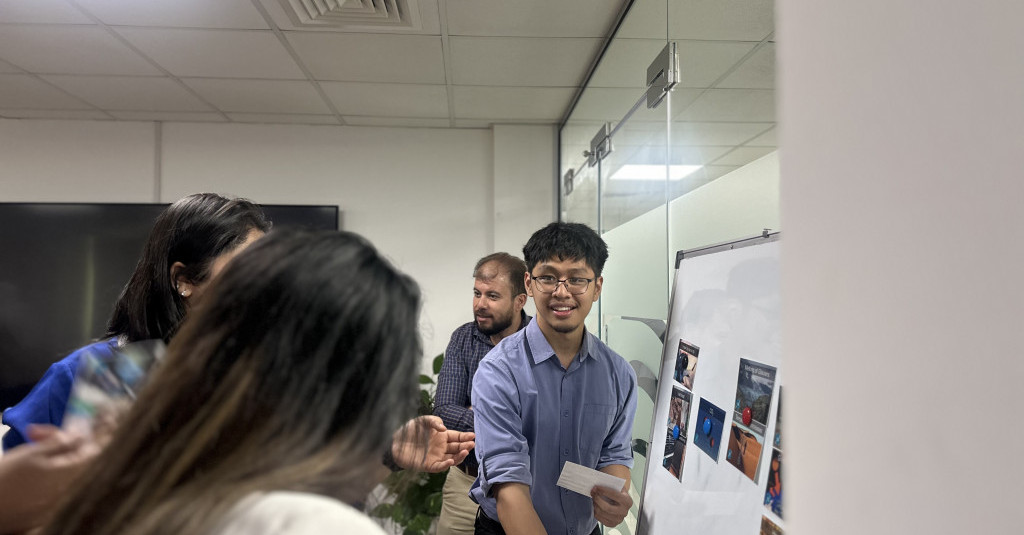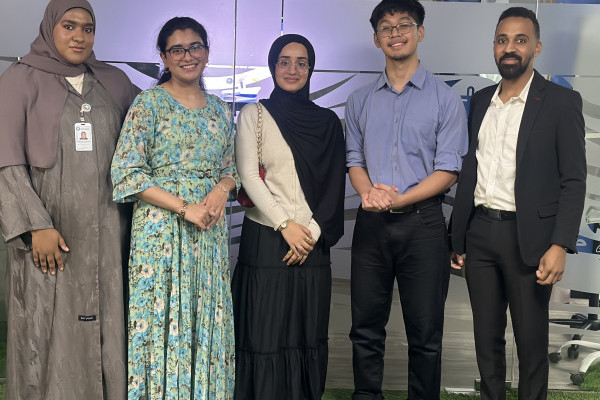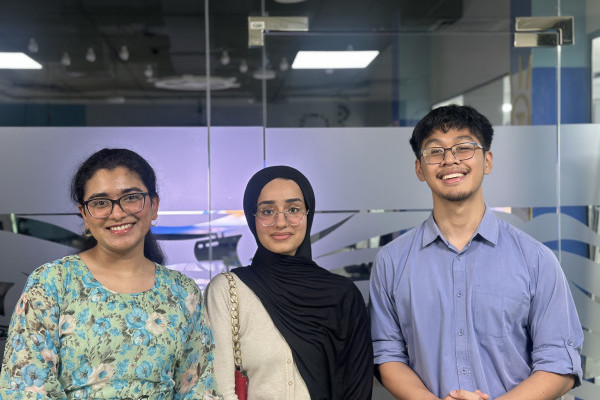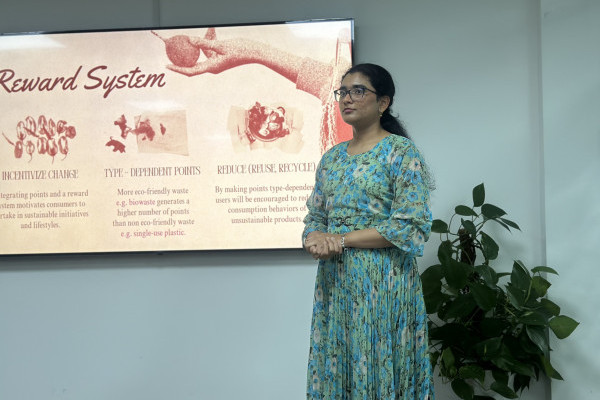News
Ajman University Students Participate in the Environmental Students Forum on Circular Economy

Ajman University students participated in the Environmental Students Forum on Circular Economy, organized by Hutchison Ports. The forum aimed to enhance students’ awareness of sustainability issues, provide them with an opportunity to exchange experiences and innovative ideas, and showcase practical solutions that contribute to supporting the circular economy and advancing sustainable development at both regional and global levels.
The forum brought together students from various universities, who were given the option to select from a range of topics covering different aspects of sustainability. These included projects managed on sustainability, community activities, technologies and practices for sustainable growth, sustainability trends in the Middle East, sustainable mobility, and creative strategies for effective waste management and recycling.
Ajman University students — Hurairah Faatimah Muzammil, Khadeeja Hashim, and Jon Zaccary — presented a prototype project on effective waste management and recycling segregation using artificial intelligence, where they demonstrated how the integration of new technologies could positively impact economic, social, and environmental sustainability. Their efforts were highly commended by the organizers, who extended a special invitation for them to attend the Global Dock School Environmental Students Forum: Green Smart Port – Circular Economy. The program included a panel discussion titled “Building a Sustainable Future: Circular Economy, Supply Chains, and Cross-Sector Collaboration” and participation in the Our Smart Port activity.
In addition, the students joined a Circular Economy Breakout Group Discussion, where participants were divided randomly into groups led by facilitators. Students stepped into the facilitators’ roles to propose improvement suggestions for Hutchison Ports in areas related to the circular economy, climate change, and sustainable supply chains. Each group concluded with a three-minute presentation based on a framework exploring the connection between circular economy principles and port operations, challenges and opportunities for circularity in ports, and innovation and future vision.
The forum also featured a Climate Fresk activity, an interactive and collaborative workshop designed to make complex climate science accessible in an engaging way. The workshop raised awareness about the urgency of the climate crisis, encouraged collective discussions and solutions, and fostered collaboration across communities, schools, companies, and organizations.
This participation reflects Ajman University’s commitment to providing students with enriching academic experiences that combine theory with practice, while preparing future leaders capable of tackling environmental challenges and offering practical solutions that advance sustainable development.


